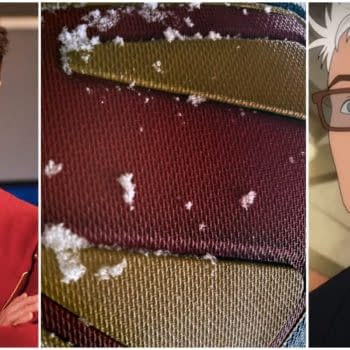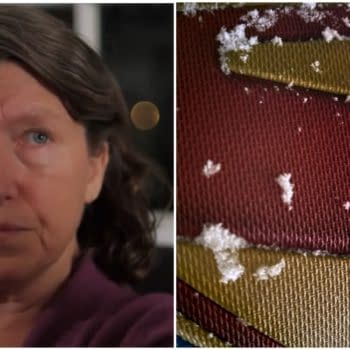Posted in: Movies, Recent Updates, Video Games | Tagged: entertainment, gaming, microsoft, nintendo, playstation 3, playstation 4, SuperNintendo, Xbox 360, xbox one
Looking Backwards – Compatibility And The Problems Of Retro Gaming
By Jared Cornelius
With two new consoles having been born over the last holiday, I thought I'd take time to talk about some-thing near and dear to my heart in looking back at retro games. The brand spanking new Xbox One and PlayStation 4 are missing a key feature. A feature publishers don't care about, and want you to forget about, backwards compatibility in your console.
Backwards compatibility has never been a key feature in home consoles. Nintendo famously pulled backwards compatibility from the Super Nintendo as a cost cutting measure, which is why it's often not included in modern day consoles. It wasn't until Sony's PlayStation 2 that the idea of backwards compatibility came to be almost expected by gamers. At face value, it makes sense to us. The old system had outdated technology. The new system is supposed to be so powerful it can control missiles from space, so why shouldn't it be able to play my old titles? At this point we were well past cart based games on home consoles, and the idea of packing away your old system or selling it for much needed store credit to procure your new console was often a must. For many of us backwards compatibility was a way of enjoying our shiny new consoles, while we waited for quality games on the new system, as launch titles are often glorified tech demos.
Shockingly, Microsoft and Sony don't seem to care about their old guard. They're content on making you buy those legacy titles again in the form of HD remakes and digital downloads. Personally, I think it's an insulting stance. Here you've been a loyal customer, buying products ranging from twenty to sixty dollars at a time, and then having it treated as an inconvenience when you still want to play those games years later on their latest hardware. Those games that you kept lovingly, those games you didn't trade to the GameStop monster, or sell on eBay. It seems to be the endemic attitude of the major console publishers looking down their noses at the average gamer, best illustrated last year by Microsoft.
Microsoft started a landslide of bad press last summer with an unclear message about its new console. Among those disjointed messages was a quote from Microsoft executive and head of their business division, Don Mattrick. While speaking to the Wall Street Journal, Mattrick was quoted as saying, "If you're backwards compatible, you're really backwards." Mattrick followed his statement by saying that only 5% of Xbox 360 users played previous generation games on the console.
As a member of that 5%, it's great to know that my support was marginalized and insulted. Here I had been a customer who had purchased their system and supported their first attempt in console gaming. Having not sold my collection of Xbox games I still owned great titles like Knights of The Old Republic, and Psychonauts that I could continue to play on the 360 as their launch lineup included gems like Quake 4. As this past generation came to a close, I had a similar desire to continue games like Skyrim, and Far Cry 3 on Microsoft's new console, but sadly it was not to be as Mattrick made it clear I was backwards. I held out hope as Microsoft made a number of 180 decisions over the summer and fall, and it reminded me of the 360's early years. Microsoft originally planned to exclude backwards compatibility from the 360, and patched in support for original Xbox games after fan outcry left them in a negative light and Sony having made it clear the PlayStation 3 would support PlayStation 1 and 2 games, (for a limited time anyway.) Sony on the other hand, removed backwards compatibility for PlayStation 2 games in a hardware revision in 2009, well after the Microsoft outcry, and with gamers distracted by a steady stream of quality games.
Shouldn't the loyal customer be rewarded for keeping their old games? I understand that it's unrealistic the further we find ourselves into the history of any console publisher as disk based media changes and we inch ever closer to an all-digital future. For fans who've continued to support the medium of games, and wants to relive the simpler polygonal joy of Maximo Ghosts to Glory, or Viewtiful Joe for the PlayStation 2 without resorting to piracy, convenience would be a boon. I believe companies like Sony and Microsoft should recognize the fans who have helped make them a success. At this point I can pack away my old games. I'm content to move on to the shiny new consoles as I have the space to store them. But I feel for the young generation who have to make the 'Sophie's Choice' of gaming. Do I keep my beloved old system and games? Or do I go clean slate and sell it all for the new console?
Modern console makers, leaving out the ability to play the games you've already purchased for their system feels like a step in the wrong direction. Who would've thought that in 2014 the company that has been the most consistent with backwards compatibility wouldn't be a massive software company or a Japanese tech giant, but the company who excluded backwards compatibility in the Super Nintendo all those years ago.
Jared Cornelius is some guy from the New Jersey coast who thinks he's insightful. If you loved the article or hated it or want to call me a hoarder and get me help you can reach me on Twitter @John_Laryngitis
















